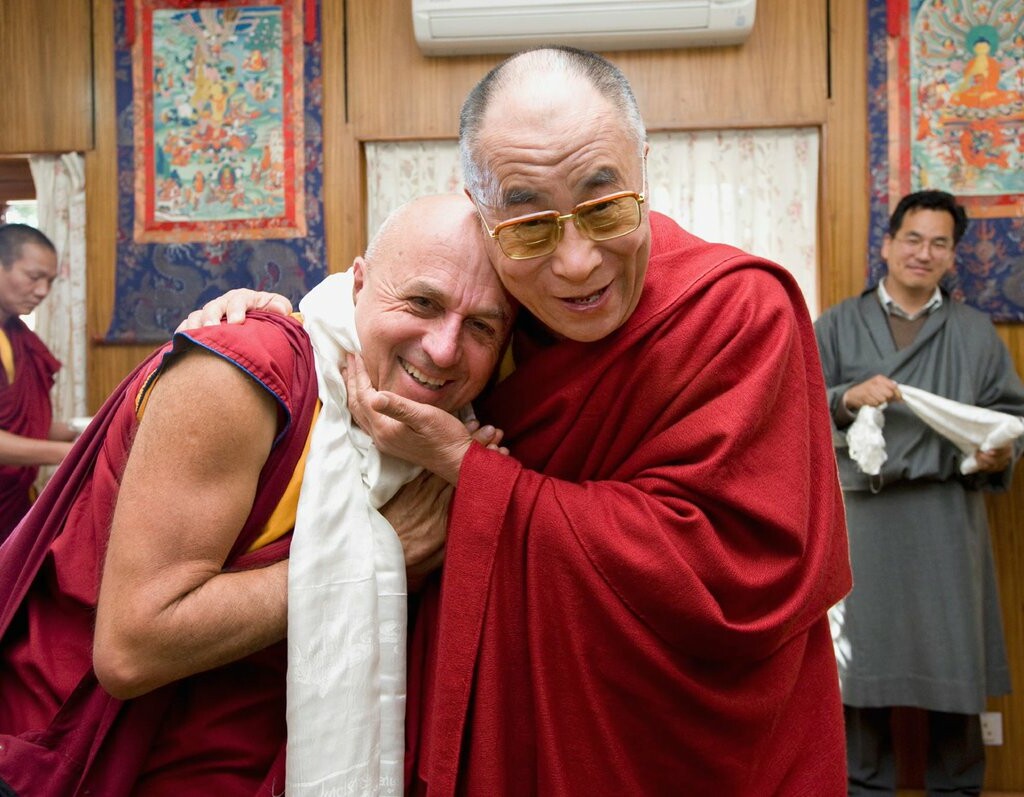In a world where the quest for happiness seems everlasting, there exists a 66-year-old Frenchman, Matthieu Ricard, who has managed to achieve a state of complete and lasting happiness through meditation.
Matthieu Ricard: The World’s Happiest Man
Although we share the same basic genetics, what sets Ricard apart is his extraordinary capacity for happiness. This trait has been validated and certified by researchers, earning him the title of “the world’s happiest man.”
Studies on the impact of meditation on the brain have shed light on how consistent practices can significantly influence our well-being.
During research conducted by neuroscientist Richard Davidson of the University of Wisconsin, Ricard was subjected to tests with 256 sensors on his skull, revealing astonishing results.
Gamma Waves and Happiness
Gamma waves, associated with consciousness, attention, learning, and memory, were presented at levels never before seen in Ricard’s brain while meditating.
This excessive brain activity in the left pre-frontal cortex, in contrast to the right, indicates a remarkable predisposition towards happiness and a reduced inclination towards negative thoughts.
Meditation and Its Transformative Impact
Research in neuroplasticity has revealed that meditation not only offers a temporary state of well-being but can also structurally modify the brain, generating profound and lasting changes in practitioners.
For 12 years, Davidson and his team have investigated the effects of meditation on attention, compassion, and emotional balance, observing notable results in individuals who dedicated 20 minutes daily to this practice, completing up to 50,000 rounds of meditation.
Davidson and his colleagues’ conclusion is revealing: meditation has the power to reshape our brains, improving our capacity to experience happiness. This research not only underscores the potential of meditation to enrich our lives but also demonstrates that just like physical exercise strengthens our muscles, meditation can be a powerful tool for cultivating lasting well-being.
The Story of a Happy Man
Four decades ago, Matthieu Ricard left behind the intellectual hustle of Paris and embarked on a journey to India to immerse himself in studying Buddhism.
This change in direction led him to become a renowned Buddhist monk at the Shechen Monastery in Kathmandu, India, and establish himself as a respected Western scholar in this philosophy, and a confidant of the Dalai Lama.
His life balances meditation retreats, participation in scientific research, travels with the Dalai Lama, and delivering lectures on science. Ricard has been recognized in France with the National Order of Merit for his efforts in preserving Himalayan culture, though his most significant contribution might be his work in the science of happiness.
Advice for Happiness
Ricard offers profound insight into meditation, explaining that while incessant thoughts are inevitable, focusing on the breath or a particular sound can calm the mind and provide clarity.
He emphasizes that controlling the mind does not limit freedom; on the contrary, it prevents us from being slaves to our thoughts. He recommends mindfulness as a technique for living in the present and distancing oneself from the distractions of the past and future.
Love, a Consuming Emotion
According to Ricard, love is an intense and fleeting experience that, with meditative practice, can be extended and deepened. He compares meditation to playing the piano, where constant practice enhances its beneficial effects.
Through regular meditation, negative emotions can be mitigated, and significant improvements in stress and overall well-being can be observed, even noting brain changes after a month of practice.
Ricard argues that dedicating 20 minutes a day to meditation is a valuable investment, improving our ability to face the challenges of the rest of the day.





